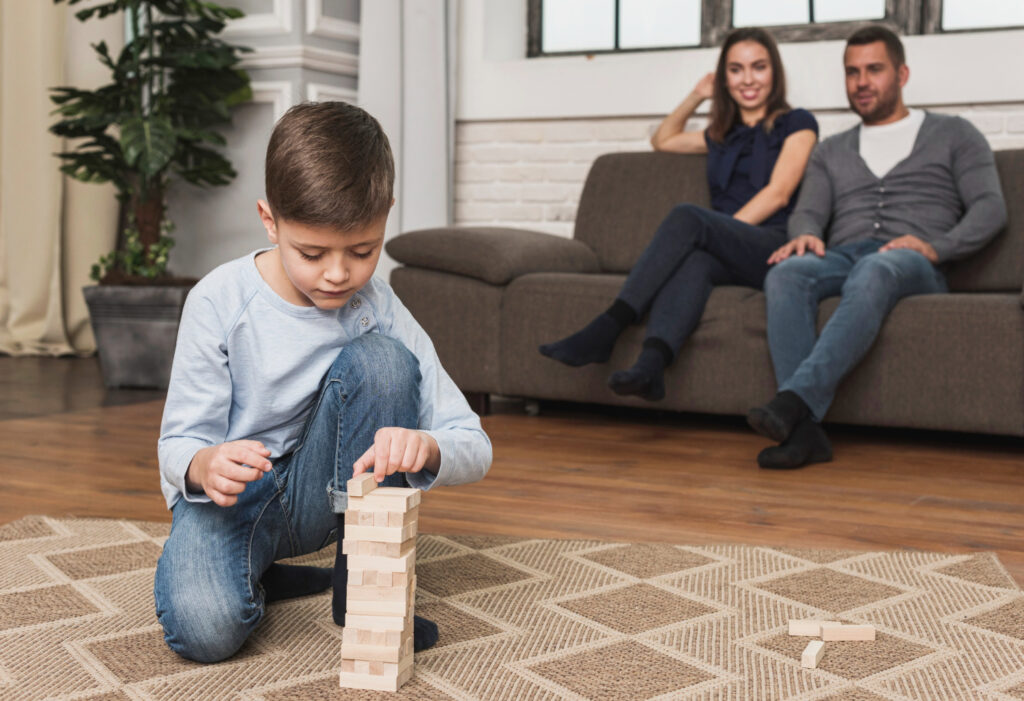Caring for a child with Autism Spectrum Disorder (ASD) can profoundly shape the dynamics of family life. While the journey is filled with moments of joy, it also presents unique challenges for parents, siblings, and extended family members. At HOPE Centre for Autism, we understand that families need both emotional and practical support to navigate these challenges. In this guide, we explore the impact of autism on family life and provide coping strategies to foster harmony and well-being.
Understanding the Impact of Autism on Families
1. Emotional Challenges for Parents
- Grief and Adjustment: Parents may initially experience sadness or confusion as they come to terms with the diagnosis.
- Stress and Fatigue: Managing appointments, therapies, and daily routines can lead to caregiver burnout.
- Fear of Judgment: Parents may feel judged by others for their child’s behavior in public spaces.
2. Siblings and Their Experience
- Conflicting Emotions: Siblings may experience pride, frustration, or jealousy, especially when they notice that their brother or sister with autism receives extra attention.
- Changes in Family Roles: Older siblings may take on additional responsibilities to support the child with autism.
3. Impact on Family Routines
- Need for Predictability: Families often adapt routines to fit the needs of their child with autism, as children with ASD thrive on structure.
- Limited Social Interaction: Attending family gatherings, vacations, or social events may become more difficult, leading to isolation.
Coping Strategies for Families
1. Educate Yourself and Your Family
The more you understand autism, the better equipped you’ll be to support your child. Attend workshops, read books, and participate in webinars offered by trusted organizations like HOPE Centre for Autism. Sharing information with siblings and relatives helps them understand the child’s needs better.
2. Build a Support Network
You are not alone on this journey. Connect with other families facing similar challenges through support groups or social media communities. Engage with professionals at HOPE Centre for Autism to learn coping strategies and receive personalized guidance.
3. Focus on Self-Care for Parents
- Avoid Caregiver Burnout: Schedule time for hobbies, exercise, or relaxation.
- Accept Help: Allow friends or family to assist with caregiving duties when needed.
- Practice Mindfulness: Simple activities like breathing exercises or journaling can help manage stress.
4. Involve Siblings Actively
Encourage siblings to participate in activities that involve their brother or sister with autism. Offer them space to express their emotions and address any feelings of frustration or neglect through open conversations.
5. Create a Structured Environment at Home
Children with autism often feel more secure in structured environments. Set consistent routines and use visual schedules to reduce anxiety. Predictable routines benefit both the child and the entire family by minimizing disruptions.
6. Plan Social Activities Carefully
Social events can sometimes be overwhelming for children with autism. Consider attending autism-friendly events or creating low-pressure family activities, such as movie nights or picnics at quiet parks.
7. Communicate with Schools and Therapists
Work closely with your child’s school and therapy team to align goals and strategies. Collaboration between home, school, and therapy professionals can make a significant difference in your child’s progress.
8. Celebrate Small Milestones
Progress may be slow, but every achievement—whether it’s making eye contact or trying a new food—is worth celebrating. These small wins provide motivation for both the child and the family.
The Role of Professional Support
At HOPE Centre for Autism, we offer a wide range of services to help families manage the impact of autism:
- Family Counseling: We provide counseling sessions to help families cope with the emotional challenges of raising a child with autism.
- Sibling Workshops: These sessions offer support to siblings, helping them understand autism and their sibling’s behavior.
- Behavioral Therapy: Our therapists guide parents in implementing strategies to manage challenging behaviors at home.
- Parent Support Groups: Connecting with other parents can help reduce feelings of isolation and provide emotional relief.
Conclusion
Living with autism affects every member of the family, but with the right strategies, families can create a nurturing environment that promotes growth and happiness. It’s essential to acknowledge the challenges while celebrating the joys that come with supporting a child with autism.
At HOPE Centre for Autism, we are committed to helping families thrive. Through therapy, counseling, and community support, we empower parents and siblings to create a positive, supportive environment. If your family is seeking guidance or resources, reach out to HOPE Centre for Autism. Together, we can help your child—and your entire family—flourish.
